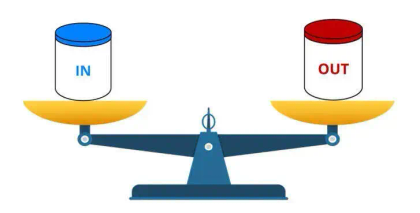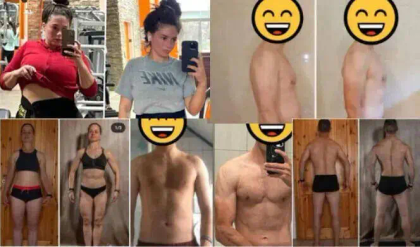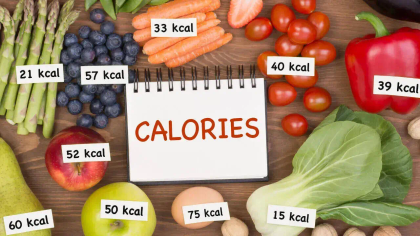The fitness industry has done a great job confusing people about calories:
“Counting calories is unhealthy”
“If you exercise, calories don’t matter”
"All you need to lose weight is a caloric deficit"
"You have to count all your calories to lose weight"
"Low-fat foods are always better for calorie control"
Depending on who you follow online, you'll get countless (often conflicting) opinions.
But what is true?
And how can you use it to reach your weight-loss goals?
That's what we'll cover in this newsletter!
Keep reading to discover the keys to calories (and successful weight loss).
Calories measure energy
A calorie is the energy needed to heat water by 1°C.
One calorie always has the same energy, like one meter is always the same length.
This is crucial to understand energy balance:

It's like a bank account:
Energy flows in as food (your income) and your body uses this energy (your expenses).
The difference between "income" and "expenses" is called caloric balance.
You'll lose weight in a caloric deficit
Kevin Magginis went viral by losing 58 lbs in 100 days - eating nothing by McDonald's!
How is that possible? Caloric balance:
Despite his food choices, he was able to consume fewer calories than his body used.
Your bank account will shrink if your expenses are higher than your income.
The same happens to your body fat if your energy intake is lower than the amount your body uses.
A calorie is a calorie, but not all sources of calories are equal
Yes, you can lose body fat by eating only McDonald's (or any food, as long as you're in a caloric deficit).
But that's like driving a Ferrari with low-quality fuel.
Let's say you consume food worth 1000 KCal:
It makes a big difference whether you get those from broccoli or french fries in regards to nutrients, satiety, and health.
To maximize your health and fitness, the nutritional quality of your food is key.
Your body burns most of its calories at rest
Most people think that exercise is the main source of energy consumption, but that's not true:
60% of your energy use accounts for maintaining muscle, organs, bones, and other tissues.
Exercise only accounts for 10%!
"Burn off" calories through exercise is inefficient:
To "burn off" a piece of cake (with approximately 500 KCal), you'd have to run for about an hour!
You don’t need to obsess over every calorie to lose weight
You need to get a grasp on your caloric intake, but that doesn't mean turning every meal you eat into a math problem.
Tracking all your calories works well and is simple, but it's not for everyone:
Obsessing over numbers can kill the joy of eating and - in the worst case - can cause eating disorders.
You can control your calories in other ways without counting them all.
Let's dive into how to do that:
1) Let go of destructive narratives
Calories are data:
Data you can use to shape the body you want toward your desire.
See this as something encouraging!
The biggest mistake you can make is getting resentful about "having to count calories".
2) Watch your eating habits for a while
When I work with new clients, they're surprised to find out they ate 1000 calories more than they thought!
This lack of awareness kills your weight-loss efforts - you have to change that:
The most straightforward thing to do is to track all your calories for a month or two.
If this sounds too overwhelming, track your meals instead.
3) Optimize for the key pillars of a good diet
Here's the good news:
Optimizing the quality of your diet will naturally reduce your caloric intake.
According to data, the average American consumes 3600 KCal - every day!
This high-calorie count mostly comes from unhealthy foods like sweet drinks, baked treats, and junk food.
Eating foods like vegetables, fresh meats or fruits, will naturally lower your calorie intake.
Here's a 14-day challenge for you
For the next 7 days, keep a diet journal.
Write down what you ate, without counting calories.
On the weekend, estimate the amount of calories you've eaten each day.
Then, go ahead and look up the actual amount of calories of the foods you ate.
Use tracking apps, nutritional labels, or ChatGPT to make it easier.
If you've never tracked before, the difference between your estimation and the actual number of calories will surprise you!
Next, consider options to adjust those meals for lower caloric intake.
Here are some general ideas:
Drink more water
Reduce sugary drinks
Shift toward whole-foods
Increase your protein intake
Increase your vegetable and fruit intake
Pick 1-3 adjustments and stick to them for the next 7 days.
After the 14 days, sit down and reflect:
What insights did you get around your caloric intake?
What adjustments could you stick to long-term?
How can you make it more enjoyable?
How did your well-being change?
What surprised you the most?
This will get you going to reach your dream physique for 2024!
If you're looking for the short-cut, I can help you.
If you're a driven entrepreneur or creator and looking to:
Efficiently manage stress for better health and productivity
Drop up to 20lbs in 90 days, without the diet-hamster-wheel
Reach your dream physique in just 2 hours per week
Click HERE for a free 30-minute strategy call where I'll show you exactly how it works.

